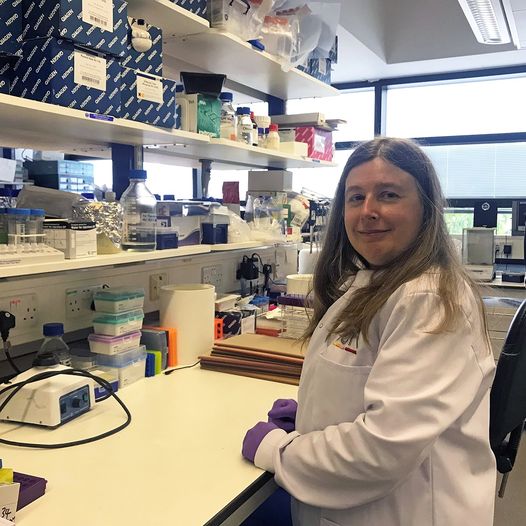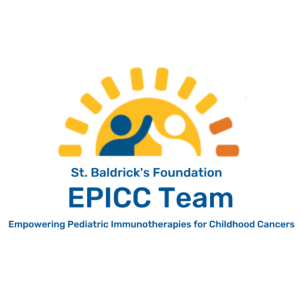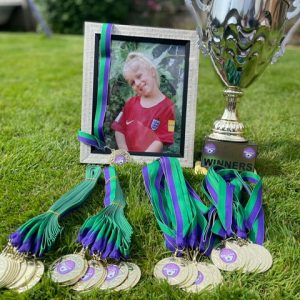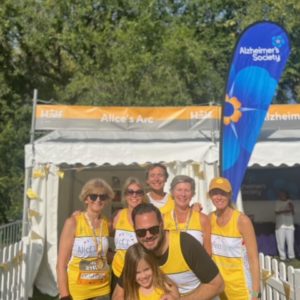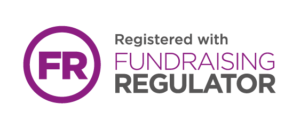Dr Joanna Selfe commented: “It’s a real privilege to work with Alice’s Arc and help improve outcomes for children with rhabdomyosarcoma (RMS) – a rare tumour which is a major cause of death from childhood cancer. By identifying patients who don’t do well on standard therapy and finding novel therapeutic approaches for them, we hope more children can be saved from this disease.
“We are also seeking to improve risk assessment so we can spare some children the worst of the side effects of treatment, without effecting their chance of being cured.”
Talk us through your typical day
My day is pretty typical for an Institute of Cancer Research (ICR) scientist – a mixture of conducting experiments in the lab, combined with time spent at the computer responding to email queries, analysing data, writing reports and papers, project planning and reading.
I also have responsibility to make sure our lab complies with the Human Tissue Act regulations, so I also spend time on that when required. We have quite a large number of collaborations both internally within the ICR and externally, so I also meet with my colleagues on a regular basis to discuss these projects.
How does your work contribute to the ICR’s mission to make the discoveries that defeat cancer?
My work aims to improve outcomes for children with rhabdomyosarcoma (RMS) – a relatively rare tumour that resembles skeletal muscle cells by finding novel therapeutic approaches for patients who don’t do well on standard therapy and improving risk stratification, so we can identify patients at high risk more readily.
Serious chronic conditions caused by harsh chemotherapy are an all too frequent burden on childhood cancer survivors, so we also hope that with better risk assessment we can spare some children the worst of the side effects of treatment without effecting their chance of being cured.
What big projects are you working on?
My current project, which is generously funded by the children’s cancer charity Alice’s Arc, aims to discover new therapeutic options for RMS patients whose tumours have a particular mutation in a muscle-specific gene encoding a transcription factor. A previous large sequencing study we conducted with collaborators in the US as well as other work, demonstrated that this mutation appears to cause particularly aggressive disease in these patients and consequently they have a poor survival rate so new treatment options are needed for them. I am modelling this mutation by introducing it into relevant cell lines so we can find effective therapeutic compounds. Click on the link to read more. https://www.alicesarc.org/alices-arc-funds-new-project-investigating-an-aggressive-mutation-identified-in-fusion-negative-rhabdomyosarcoma/
Your work in a tweet
Improving the outcome of paediatric RMS by exploring new therapeutic options and increasing the accuracy of risk prediction.#ChildhoodCancer, #newkindertreatments
What are you most proud of?
I am proud to have been involved in many joint projects with The Royal Marsden during my time at the ICR which have helped to shape and manage treatments for children with RMS for the better, as well as informing the direction of clinical trials. I have also been grateful to pass on some of my knowledge and experience to students that I have supervised over the years.
I am also proud to have been supported by a number of family charity partners along the way – including Alice’s Arc, Chris Lucas Trust and Talan’s Trust. It is very humbling to make research progress in honour of children who have been taken too soon by cancer.
Who do you collaborate with at the ICR and elsewhere?
We work closely with paediatricians at The Royal Marsden and depend constantly on the invaluable skills of specialist pathologists there and in Manchester. I am also involved in several collaborative projects with other labs in Sweden, Switzerland, Italy, Holland and the United States. Internally, I have been involved in digital pathology projects.
What makes you want to work for the ICR?
It is a huge strength of the ICR to have so many experts in different fields under one roof. As new technologies allow ever more complex types of analysis, it is increasingly important to have these cutting-edge techniques available to as many teams as possible, and the ICR is particularly well placed to provide these facilities and expertise. Our relationship with The Royal Marsden is obviously also ideal for a ‘bench to bedside’ approach.
What’s your favourite part of your job?
I really appreciate that my job has a practical hands-on technical side in running experiments and an analytical side where you can plan projects on a larger scale and work on the big picture, that balance suits me. Science is constantly evolving so there are always new approaches to explore which keeps things exciting!
What do you do to wind down?
I love to escape to the countryside for walks with my retired racing greyhound.
What are colleagues least likely to know about you?
I rode horses for many years and hope to do so again in the future.
